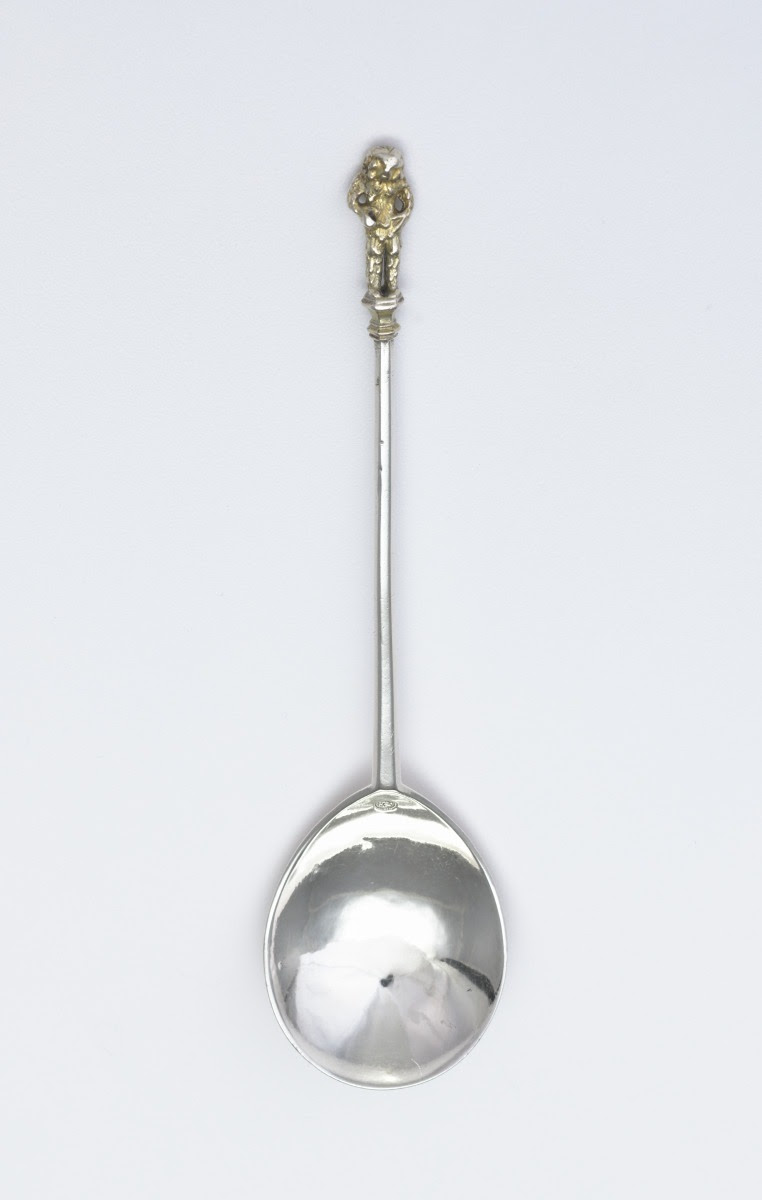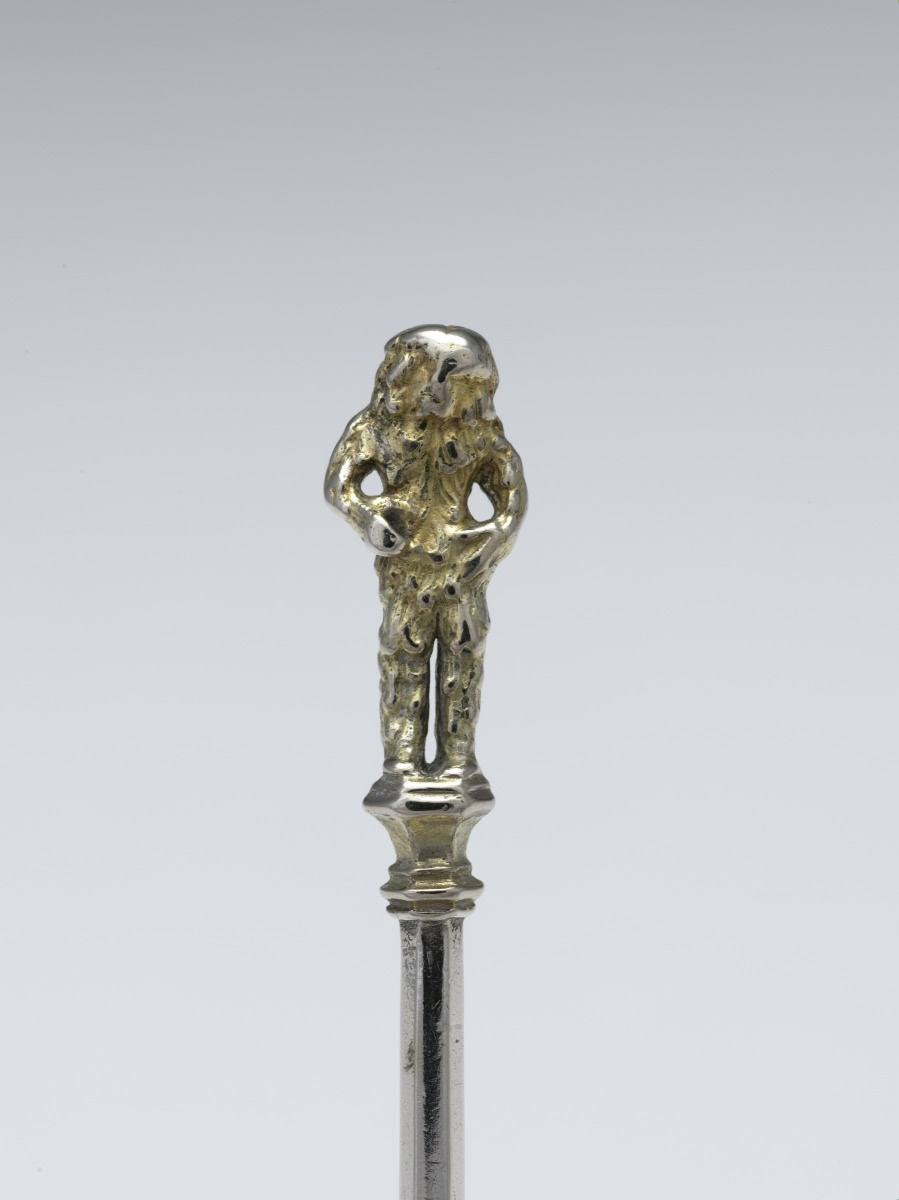Tim Martin

Part I: The Commando
At some point just after the war, Sidney Shrubsole (the S.J. of S.J. Shrubsole) found a remarkably rare spoon, something along the lines of that Holy Grail of medieval English silver: the Wodewose spoon. While Sidney’s son Charles (Eric’s brother) had been gaining expertise in spoons and building clients in spoon-collecting circles, there was one firm which bestrode that narrow world like a colossus: How of Edinburgh. With the hard-nosed and punctilious Commander George Evelyn Paget How, of the Royal Navy, at the helm, and his formidably stern partner and wife Jane in charge of ordnance and the books, they were a force. In the trade they were called “the Commander, and the Commando.”
So, what to do with this remarkable spoon? Eric and Charles couldn’t decide. They could sell it to one of their clients, but they were anxious that it might be worth more than they knew. So, they resolved to go to How, ask a “mad price,” and gauge the response.
On a bright, sunny day, they ventured into storied little Pickering Place, off St. James’s, where How had their premises on the second floor, and rang the bell. They heard a window open and a brusque voice call out:
“Who is it and what do you want?”
“It’s Charles and Eric Shrubsole. Mrs. How, we’ve found a spoon you might like!”
“Wait right there.”
And so they waited, not considering how odd it was not to be asked up, until a great slosh of water soaked them to the skin. Looking up to see what had happened, they met the defiant stare of Mrs. How, triumphantly holding a bucket. “Now go away,” she growled “and don’t come back!” And the window slammed shut.
“Bloody hell” said Eric, “what’s this all about?”

Part II: The Commander
Although they regularly crossed paths, and swords, in the salerooms, the parties to this bizarre encounter never spoke of it—inveterate pride on both sides—until years later.
In 1968, the Royal Ontario Museum organized a magnificent exhibition called “Prized Possessions from Private Homes.” As museums aren’t always aware of all the prized possessions in private homes, the ROM asked dealers to help arrange anonymous loans. And of course, at the opening party for the show two of those dealers, Eric and Mrs. How, were seated next to each other. After being assiduously ignored for half an hour, Eric spoke up.
“Mrs. How, do you really mean to snub me? I have no idea what I have done that could ever have offended you, but I do feel you owe me some kind of explanation.”
“Mr. Shrubsole!” she intoned, “Your father sold my husband a pair of fake Dutch dredgers!”
“Mrs. How,” Eric replied, incensed, “but…do you mean to say that your husband, the esteemed Commander How, that infallible expert, bought fakes? Why, that’s shocking! My daddy never pretended to know the first thing about Dutch silver, but your husband, with his level of expertise, to buy fakes,” and here some clucking, and a challenging stare: “I never knew he did that!”
Once, after telling that story, Eric gleefully asked: “Who’s the Commander now?!” In any case, the counterpunch brought détente, which mellowed to grudging respect, and finally ripened into nonagenarian cordiality. Fifty-five years later, when her personal collection came up at Christie’s, that turned out to be a good thing for all parties.
As Boccaccio would say: a domani.